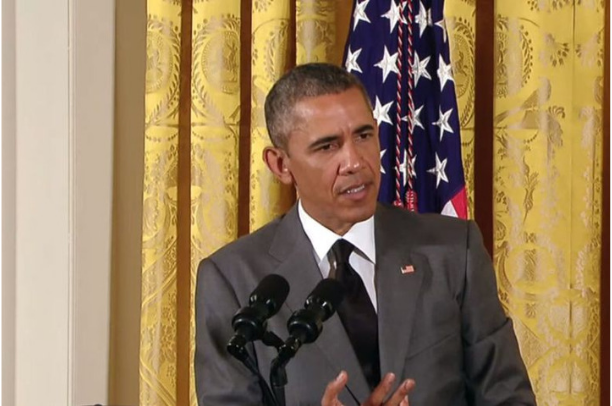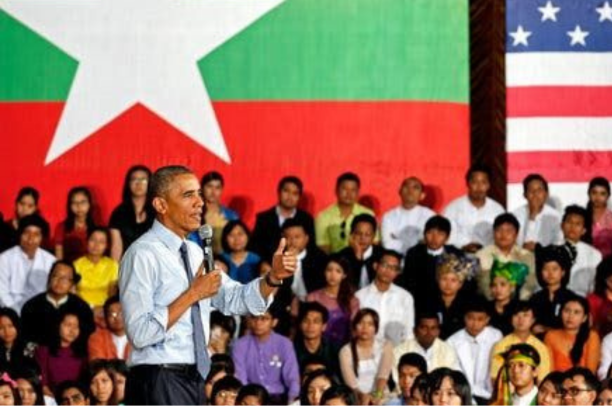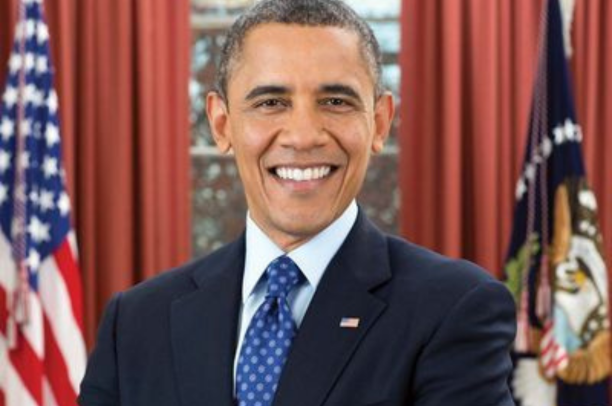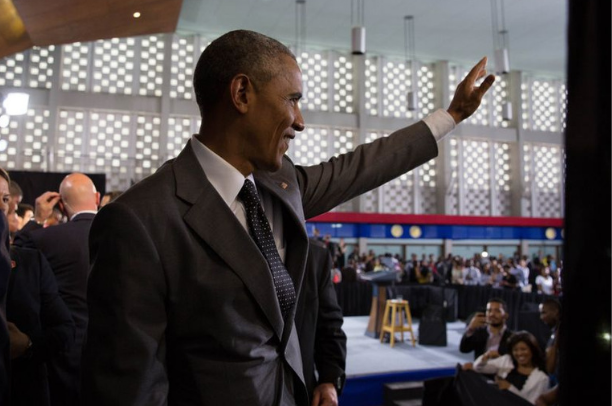Hurricane Katrina 10-Year Anniversary Address
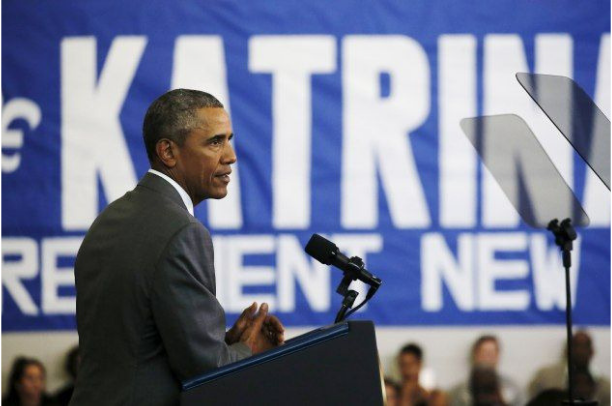
President Obama delivered a 10-year anniversary address for Hurricane Katrina at the Andrew Sanchez Community Center in New Orleans, Louisiana. He highlighted the city’s resilience and progress, discussed national economic recovery, emphasized the importance of government support, and praised the spirit of the people of New Orleans.
Want to learn more about storytelling? Start by downloading the first chapter of The Storytelling Mastery.
Hello, everybody! Where y’at? It is good to be back in the Big Easy. And this is the weather in August all the time, right? As soon as I land in New Orleans, the first thing I do is get hungry. When I was here with the family a few years ago, I had a shrimp po-boy at Parkway Bakery and Tavern. I still remember it — that’s how good it was. And one day, after I leave office, maybe I’ll finally hear Rebirth at the Maple Leaf on Tuesday night. I’ll get a chance to “see the Mardi Gras,” and somebody will tell me what’s Carnival for. — But right now, I just go to meetings.
I want to thank Michelle for the introduction and, more importantly, for the great work she’s doing, what she symbolizes, and what she represents in terms of the city bouncing back. I want to acknowledge a great friend and somebody who has been working tirelessly on behalf of this city, and he’s following a family legacy of service — your mayor, Mitch Landrieu. Proud of him. And his beautiful wife, Cheryl. Senator Bill Cassidy is here. Where did Senator Cassidy go? There he is. Congressman Cedric Richmond. Where’s the Congressman? There he is over there. We’ve got a lifelong champion of Louisiana in your former senator, Mary Landrieu in the house. Mary! I want to acknowledge a great supporter to the efforts to recover and rebuild, Congressman Hakeem Jeffries from New York, who has traveled down here with us.
To learn more, see the full series: Barack Obama Speeches.
To all the elected officials from Louisiana and Mississippi who are here today, thank you so much for your reception.
I’m here to talk about a specific recovery. But before I begin to talk just about New Orleans, I want to talk about America’s recovery, take a little moment of presidential privilege to talk about what’s been happening in our economy. This morning, we learned that our economy grew at a stronger and more robust clip back in the spring than anybody knew at the time. The data always lags. We already knew that over the past five and a half years, our businesses have created 13 million new jobs. These new numbers that came out, showing that the economy was growing at a 3.7 percent clip, means that the United States of America remains an anchor of global strength and stability in the world — that we have recovered faster, more steadily, stronger than just about any economy after the worst financial crisis since the Great Depression.
And it’s important for us to remember that strength. It’s been a volatile few weeks around the world. And there’s been a lot of reports in the news, and the stock market swinging, and worries about China and about Europe. But the United States of America, for all the challenges that we still have, continue to have the best cards. We just got to play them right.
Our economy has been moving, and continues to grow. And unemployment continues to come down. And our work is not yet done, but we have to have that sense of steadiness and vision and purpose in order to sustain this recovery so that it reaches everybody and not just some. It’s why we need to do everything we can in government to make sure our economy keeps growing. That requires Congress to protect our momentum — not kill it. Congress is about to come back from a six-week recess. The deadline to fund the government is, as always, the end of September. And so I want everybody just to understand that Congress has about a month to pass a budget that helps our economy grow. Otherwise, we risk shutting down the government and services that we all count on for the second time in two years. That would not be responsible. It does not have to happen.
Congress needs to fund America in a way that invests in our growth and our security, and not cuts us off at the knees by locking in mindless austerity or shortsighted sequester cuts to our economy or our military. I’ve said I will veto a budget like that. I think most Americans agree we’ve got to invest in, rather than cut, things like military readiness, infrastructure, schools, public health, the research and development that keeps our companies on the cutting edge.
That’s what great nations do. That’s what great nations do. And you know, eventually, we’re going to do it anyway, so let’s just do it without too much drama. Let’s do it without another round of threats to shut down the government. Let’s not introduce unrelated partisan issues. Nobody gets to hold the American economy hostage over their own ideological demands. You, the people who send us to Washington, expect better. Am I correct?
So my message to Congress is: Pass a budget. Prevent a shutdown. Don’t wait until the last minute. Don’t worry our businesses or our workers by contributing unnecessarily to global uncertainty. Get it done, and keep the United States of America the anchor of global strength that we are and always should be.
Now, that’s a process of national recovery that from coast to coast we’ve been going through. But there’s been a specific process of recovery that is perhaps unique in my lifetime, right here in the state of Louisiana, right here in New Orleans.
Not long ago, our gathering here in the Lower 9 probably would have seemed unlikely. As I was flying here today with a homegirl from Louisiana, Donna Brazile, she was — she saved all the magazines, and she was whipping them out, and one of them was a picture of the Lower 9th right after the storm had happened. And the notion that there would be anything left seemed unimaginable at the time.
Today, this new community center stands as a symbol of the extraordinary resilience of this city, the extraordinary resilience of its people, the extraordinary resilience of the entire Gulf Coast and of the United States of America. You are an example of what is possible when, in the face of tragedy and in the face of hardship, good people come together to lend a hand, and, brick by brick, block by block, neighborhood by neighborhood, you build a better future.
And that, more than any other reason, is why I’ve come back here today — plus, Mitch Landrieu asked me to. It’s been 10 years since Katrina hit, devastating communities in Louisiana and Mississippi, across the Gulf Coast. In the days following its landfall, more than 1,800 of our fellow citizens — men, women and children — lost their lives. Some folks in this room may have lost a loved one in that storm.
Thousands of people saw their homes destroyed, livelihoods wiped out, hopes and dreams shattered. Many scattered in exodus to cities across the country, and too many still haven’t returned. Those who stayed and lived through that epic struggle still feel the trauma sometimes of what happened. As one woman from Gentilly recently wrote me, “A deep part of the whole story is the grief.” So there’s grief then and there’s still some grief in our hearts.
Here in New Orleans, a city that embodies a celebration of life, suddenly seemed devoid of life. A place once defined by color and sound — the second line down the street, the crawfish boils in backyards, the music always in the air — suddenly it was dark and silent. And the world watched in horror. We saw those rising waters drown the iconic streets of New Orleans. Families stranded on rooftops. Bodies in the streets. Children crying, crowded in the Superdome. An American city dark and under water.
And this was something that was supposed to never happen here — maybe somewhere else. But not here, not in America. And we came to realize that what started out as a natural disaster became a manmade disaster — a failure of government to look out for its own citizens. And the storm laid bare a deeper tragedy that had been brewing for decades because we came to understand that New Orleans, like so many cities and communities across the country, had for too long been plagued by structural inequalities that left too many people, especially poor people, especially people of color, without good jobs or affordable health care or decent housing. Too many kids grew up surrounded by violent crime, cycling through substandard schools where few had a shot to break out of poverty. And so like a body weakened already, undernourished already, when the storm hit, there was no resources to fall back on.
Shortly after I visited — shortly after the storm, I visited with folks not here because we couldn’t distract local recover efforts. Instead, I visited folks in a shelter in Houston — many who had been displaced. And one woman told me, “We had nothing before the hurricane. And now we have less than nothing.” We had nothing before the hurricane — now we had less than nothing.
And we acknowledge this loss, and this pain, not to dwell on the past, not to wallow in grief; we do it to fortify our commitment and to bolster our hope, to understand what it is that we’ve learned, and how far we’ve come.
Because this is a city that slowly, unmistakably, together, is moving forward. Because the project of rebuilding here wasn’t just to restore the city as it had been. It was to build a city as it should be — a city where everyone, no matter what they look like, how much money they’ve got, where they come from, where they’re born has a chance to make it.
And I’m here to say that on that larger project of a better, stronger, more just New Orleans, the progress that you have made is remarkable. The progress you’ve made is remarkable.
That’s not to say things are perfect. Mitch would be the first one to say that. We know that African Americans and folks in hard-hit parishes like Plaquemines and St. Bernard are less likely to feel like they’ve recovered. Certainly we know violence still scars the lives of too many youth in this city. As hard as rebuilding levees are, as hard as —
Auditor: [Inaudible] Mental health.
President Obama: I agree with that. But I’ll get to that. Thank you, ma’am.
As hard as rebuilding levees is, as hard as rebuilding housing is, real change — real lasting, structural change — that’s even harder. And it takes courage to experiment with new ideas and change the old ways of doing things. That’s hard. Getting it right, and making sure that everybody is included and everybody has a fair shot at success — that takes time. That’s not unique to New Orleans. We’ve got those challenges all across the country.
But I’m here to say, I’m here to hold up a mirror and say because of you, the people of New Orleans, working together, this city is moving in the right direction. And I have never been more confident that together we will get to where we need to go. You inspire me.
Your efforts inspire me. And no matter how hard it’s been and how hard and how long the road ahead might seem, you’re working and building and striving for a better tomorrow. I see evidence of it all across this city. And, by the way, along the way, the people of New Orleans didn’t just inspire me, you inspired all of America. Folks have been watching what’s happened here, and they’ve seen a reflection of the very best of the American spirit.
As President, I’ve been proud to be your partner. Across the board, I’ve made the recovery and rebuilding of the Gulf Coast a priority. I made promises when I was a senator that I’d help. And I’ve kept those promises.
We’re cutting red tape to help you build back even stronger. We’re taking the lessons we’ve learned here, we’ve applied them across the country, including places like New York and New Jersey after Hurricane Sandy.
If Katrina was initially an example of what happens when government fails, the recovery has been an example of what’s possible when government works together — state and local, community — everybody working together as true partners.
Together, we’ve delivered resources to help Louisiana, Mississippi, Alabama, and Florida rebuild schools and hospitals, roads, police and fire stations, restore historic buildings and museums. And we’re building smarter, doing everything from elevating homes to retrofitting buildings to improving drainage, so that our communities are better prepared for the next storm.
Working together, we’ve transformed education in this city. Before the storm, New Orleans public schools were largely broken, leaving generations of low-income kids without a decent education. Today, thanks to parents and educators, school leaders, nonprofits, we’re seeing real gains in achievement, with new schools, more resources to retain and develop and support great teachers and principals. We have data that shows before the storm, the high school graduation rate was 54 percent. Today, it’s up to 73 percent. Before the storm, college enrollment was 37 percent. Today, it’s almost 60 percent. We still have a long way to go, but that is real progress. New Orleans is coming back better and stronger.
Working together, we’re providing housing assistance to more families today than before the storm, with new apartments and housing vouchers. And we will keep working until everybody who wants to come home can come home.
Together, we’re building a New Orleans that is as entrepreneurial as any place in the country, with a focus on expanding job opportunities and making sure that more people benefit from a growing economy here. We’re creating jobs to rebuild the city’s transportation infrastructure, expanding training programs for industries like high-tech manufacturing, but also water management, because we’ve been building some good water management around here and we want to make sure everybody has access to those good, well-paying jobs. Small businesses like Michelle’s are growing. It’s small businesses like hers that are helping to fuel 65 straight months of private sector job growth in America. That’s the longest streak in American history.
Together, we’re doing more to make sure that everyone in this city has access to great health care. More folks have access to primary care at neighborhood clinics so that they can get the preventive care that they need. We’re building a brand new VA Medical Center downtown, alongside a thriving biosciences corridor that’s attracting new jobs and investment. We are working to make sure that we have additional mental health facilities across the city and across the country, and more people have access to quality, affordable health care –- some of the more than 16 million Americans who have gained health insurance over the past few years.
All of this progress is the result of the commitment and drive of the people of this region. I saw that spirit today. Mitch and I started walking around a little bit. Such a nice day outside. And we went to Faubourg Lafitte, we were in Tremé, and we saw returning residents living in brand new homes, mixed income — new homes near schools and clinics and parks, child care centers; more opportunities for working families.
We saw that spirit today at Willie Mae’s Scotch House. After Katrina had destroyed that legendary restaurant, some of the best chefs from the country decided America could not afford to lose such an important place. So they came down here to help — helped rebuild. And I just sampled some of her fried chicken. — It was really good. — Although I did get a grease spot on my suit. — But that’s okay. If you come to New Orleans and you don’t have a grease spot somewhere — then you didn’t enjoy the city. Just glad I didn’t get it on my tie.
We all just heard that spirit of New Orleans in the remarkable young people from Roots of Music. When the storm washed away a lot of middle school music programs, Roots of Music helped fill that gap. And today, it’s building the next generation of musical talent — the next Irma Thomas, or the next Trombone Shorty, or the next Dr. John. There’s a Marsalis kid in here somewhere. How you doing?
And I saw it in the wonderful young men I met earlier who are part of “NOLA for Life,” which is focused on reducing the number of murders in the city of New Orleans. This is a program that works with the White House’s My Brother’s Keeper initiative to make sure that all young people, and particularly our boys and young men of color who so disproportionately are impacted by crime and violence, have the opportunity to fulfill their full potential.
In fact, after the storm, this city became a laboratory for urban innovation across the board. And we’ve been tackling with you, as a partner, all sorts of major challenges — fighting poverty, supporting our homeless veterans. And as a result, New Orleans has become a model for the nation as the first city, the first major city to end veterans’ homelessness — which is a remarkable achievement.
You’re also becoming a model for the nation when it comes to disaster response and resilience. We learned lessons from Katrina. The U.S. Army Corps of Engineers developed stricter standards, more advanced techniques for levees. Here in Louisiana, we built a 14 billion dollar system of improved levees and pump stations and gates — a system that stood the test of Hurricane Isaac.
We’ve revamped FEMA — and I just have to say, by the way, there’s a man named Craig Fugate who runs FEMA –and has been doing extraordinary work, and his team, all across the country, every time there’s a disaster. I love me some Craig Fugate. — Although it’s a little disturbing — he gets excited when there are disasters — because he gets restless if everything is just quiet. But under his leadership, we’ve revamped FEMA into a stronger, more efficient agency. In fact, the whole federal government has gotten smarter at preventing and recovering from disasters, and serving as a better partner to local and state governments.
And as I’ll talk about next week, when I visit Alaska, making our communities more resilient is going to be increasingly important, because we’re going to see more extreme weather events as the result of climate change — deeper droughts, deadlier wildfires, stronger storms. That’s why, in addition to things like new and better levees, we’ve also been investing in restoring wetlands and other natural systems that are just as critical for storm protection.
So we’ve made a lot of progress over the past 10 years. You’ve made a lot of progress. That gives us hope. But it doesn’t allow for complacency. It doesn’t mean we can rest. Our work here won’t be done when almost 40 percent of children still live in poverty in this city. That’s not a finished job. That’s not a full recovery. Our work won’t be done when a typical black household earns half the income of white households in this city. The work is not done yet.
Our work is not done when there’s still too many people who have yet to find good, affordable housing, and too many people — especially African American men — who can’t find a job. Not when there are still too many people who haven’t been able to come back home; folks who, around the country, every day, live the words sung by Louis Armstrong, “Do you know what it means to miss New Orleans?”
But the thing is, the people of New Orleans, there’s something in you guys that is just irrepressible. You guys have a way of making a way out of no way. You know the sun comes out after every storm. You’ve got hope — especially your young people reflect hope — young people like Victor York-Carter. Where’s Victor? Victor York-Carter. Stand up, Victor. I was just talking to Victor. I had some lunch with him. He’s this fine young man that I just met with. Stand up — everybody. See, these are the guys who I ate chicken with. Really impressive — have overcome more than their fair share of challenges, but are still focused on the future. Yes, sit down. I don’t want you to start getting embarrassed. —
So I’ll just give you one example. Victor grew up in the 8th Ward. Gifted art student, loved math. He was 13 when Katrina hit. And he remembers waking up to what looked like something out of a disaster movie. He and his family waded across the city, towing his younger brother in a trash can to keep him afloat.
They were eventually evacuated to Texas. Six months later, they returned, and the city was almost unrecognizable. Victor saw his peers struggling to cope, many of them still traumatized, their lives still disordered. So he joined an organization called Rethink to help young people get more involved in rebuilding New Orleans. And recently, he finished a coding boot camp at Operation Spark; today, he’s studying to earn a high-tech job. He wants to introduce more young people to science and technology and civics so that they have the tools to change the world.
And so Victor and these young men that I just met with, they’ve overcome extraordinary odds. They’ve lived through more than most of us will ever have to endure. They’ve made some mistakes along the way. But for all that they’ve been through, they have been just as determined to improve their own lives, to take responsibility for themselves, but also to try to see if they can help others along the way.
So when I talk to young men like that, that gives me hope. It’s still hard. I told them they can’t get down on themselves. Tough stuff will happen along the way. But if they’ve come this far, they can keep on going.
And Americans like you — the people of New Orleans, young men like this — you’re what recovery has been all about. You’re why I’m confident that we can recover from crisis and start to move forward. You’ve helped this country recover from a crisis and helped it move forward. You’re the reason 13 million new jobs have been created. You’re the reason the unemployment rate fell from 10 percent to 5.3. You’re the reason that layoffs are near an all-time low. You’re the reason the uninsured rate is at an all-time low and the high school graduation rate is at an all-time high, and the deficit has been cut by two-thirds, and two wars are over. And nearly 180,000 American troops who were serving in Iraq and Afghanistan have now gone down to 15,000. And a clean energy revolution is helping to save this planet.
You’re the reason why justice has expanded and now we’re focused on making sure that everybody is treated fairly under the law, and why people have the freedom to marry whoever they love from sea to shining sea.
I tell you, we’re moving into the next presidential cycle and the next political season, and you will hear a lot of people telling you everything that’s wrong with America. And that’s okay. That’s a proper part of our democracy. One of the things about America is we’re never satisfied. We keep pushing forward. We keep asking questions. We keep challenging our government. We keep challenging our leaders. We keep looking for the next set of challenges to tackle. We find what’s wrong because we have confidence that we can fix it.
But it’s important that we remember what’s right, and what’s good, and what’s hopeful about this country. It’s worth remembering that for all the tragedy, for the all images of Katrina in those first few days, in those first few months, look at what’s happened here. It’s worth remembering the thousands of Americans like Michelle, and Victor, and Mrs. Willie Mae and the folks who rallied around her — Americans all across this country who when they saw neighbors and friends or strangers in need came to help. And people who today still spend their time every day helping others — rolling up their sleeves, doing the hard work of changing this country without the need for credit or the need for glory; don’t get their name in the papers, don’t see their day in the sun, do it because it’s right.
These Americans live the basic values that define this country — the value we’ve been reminded of in these past 10 years as we’ve come back from a crisis that changed this city, and an economic crisis that spread throughout the nation — the basic notion that I am my brother’s keeper, and I am my sister’s keeper, and that we look out for each other and that we’re all in this together.
That’s the story of New Orleans — but that’s also the story of America — a city that, for almost 300 years, has been the gateway to America’s soul. Where the jazz makes you cry, the funerals make you dance — the bayou makes you believe all kinds of things. — A place that has always brought together people of all races and religions and languages. And everybody adds their culture and their flavor into this city’s gumbo. You remind our nation that for all of our differences, in the end, what matters is we’re all in the same boat. We all share a similar destiny.
If we stay focused on that common purpose, if we remember our responsibility to ourselves but also our responsibilities and obligations to one another, we will not just rebuild this city, we will rebuild this country. We’ll make sure not just these young men, but every child in America has a structure and support and love and the kind of nurturing that they need to succeed. We’ll leave behind a city and a nation that’s worthy of generations to come.
That’s what you’ve gotten started. Now we got to finish the job.
Thank you. God bless you. God bless America.
Want to learn more about storytelling? Start by downloading the first chapter of The Storytelling Mastery.
